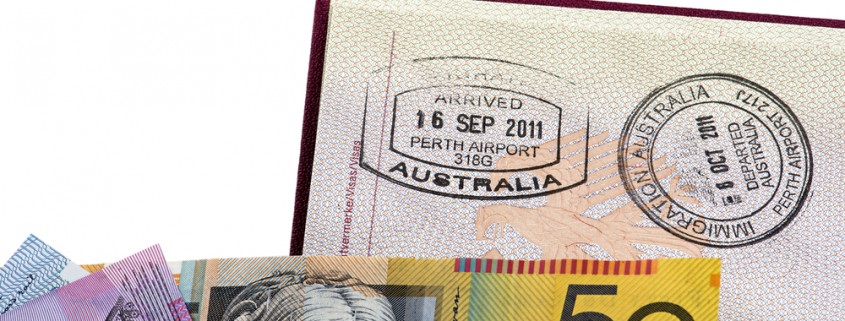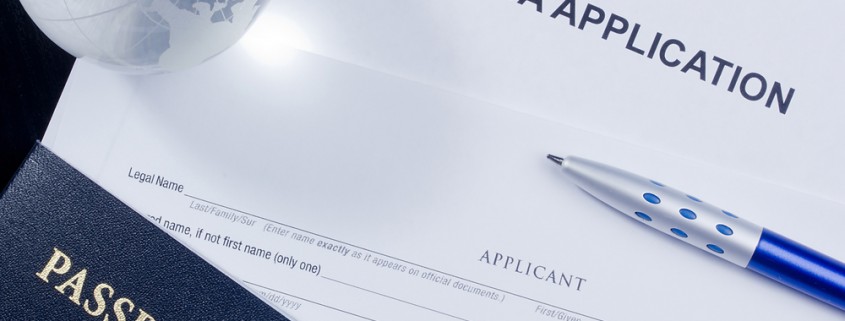- Visa applicants are suspected of being involved in migration fraud in the partner visa programme.
- Centrelink customers are failing to report their correct relationship status to DIBP.
- External parties are using the partner visa programme as a path for their clients to obtain permanent residency in Australia.
- Sponsors are potentially being exploited through the partner visa programme.
The government has today released the new complying investment framework for the Significant Investor Visa (SIV) and the Premium Investor Visa (PIV). The new framework will be implemented from 1 July 2015 and will encourage investment into Australian innovation, and emerging companies. Austrade, along with the State and Territory Governments, will become nominators for the SIV, whilst Austrade will be the sole nominator for the PIV.
Under the new framework, SIV applicants will be required to invest a minimum of $5 million over four years in complying investments, which now include:
- A minimum of $500,000 in eligible Australian venture capital or growth private equity funds investing in start-up or small private companies. Within two years, the government will increase this amount to $1 million for new applications;
- A minimum of $1.5 million in an eligible managed fund or Listed Investment Companies (LICs) that invest in start-ups listed on the Australian Stock Exchange (ASX); and
- the balance of $3 million in an eligible managed fund or LICs that invest in a range of other ASX listed companies, eligible corporate bonds and notes, annuities, and real property (with a 10% limit on residential real estate).
This new framework will allow for investments to go into areas that require growth, instead of being put into areas that already see significant capital flow, such as government bonds and residential real estate funds.
The PIV, which will be introduced on 1 July 2015, will target talented and innovative business people, and will offer an accelerated 12 month pathway to permanent residency for those who invest at least $15 million into complying investments. The Australia Government will issue invitations to potential applicants, and Austrade and the States and Territories will also each play a significant role in identifying individuals.
Under the new framework, PIV applicants will be required to invest in eligible investments, including:
- ASX listed assets;
- Australia Government bonds or notes;
- Corporate bonds or notes issued by an ASX listed entity;
- Australian proprietary limited companies;
- Real property in Australia, excluding residential;
- Deferred annuities issued by Australian registered life companies; and
- S&T government approved philanthropic donations.
There will be a further requirement that cash is to be 20% or less of a fund’s net assets, and derivatives are to be used for risk management purposes only.
FCB Smart Visa will update you on any further developments on SIVs and PIVs as information is released. To discuss how these changes might affect your current situation, please contact an FCB Smart Visa migration agent on (02) 9922 5188.
The newly released Federal Budget 2015 has brought with it some significant changes to many areas, including much of immigration and border protection. One of the most significant changes affecting potential visa applicants is the increase in Visa Application Charges (VAC) for a range of visas. The aim of these price increases is to raise the government’s revenue, and is expected to do so to the tune of $437.1 million over the next four years.
From 1 July 2015, the following changes are likely to be seen:
- The VACs for visa applications made overseas will increase to align with the application charges of onshore visas (with the exception of Child visas, which will instead be matched to offshore prices);
- The Subclass 457 VAC will increase by 25%;
- The Significant Investment Visa VAC will increase by 50%; and
- Working holiday visa holders will have the tax free threshold (currently up to $18,200) removed, and will be made to pay 32.5 percent tax from the first dollar they earn while travelling and working in Australia.
FCB Smart Visa will continue to provide updates on the implications for immigration as a result of the Federal Budget in due course. If you have any migration matters that you would like to discuss, please call an FCB Smart Visa migration agent on 02 9922 5188.
The Australian Government’s Productivity Commission has been tasked with identifying options for Australia’s future intake of migrants in order to improve the wealth and living standards of Australians, assist the budgets of the Government, and minimise the costs associated with immigration. The inquiry will primarily focus on the greater use of charges to determine the intake of both temporary and permanent migrants into Australia, and its findings will be published in a report due for release by March 2016.
A price-based model of immigration has been discussed at length by various economists over the years, but most recently by Gary Becker. Becker’s proposal focuses on how this model would deliver greater benefits to both the immigrants, and the host countries.
The May 2015 Productivity Commission Issues Paper, Migrant Intake Into Australia, identifies four areas that will need to be investigated, to determine the effectiveness of the proposal in the above objectives:
- The benefits and costs that can be generated from the intake of temporary and permanent residents, with respect to:
a) The income, wealth and living standards of Australians, and how they will be impacted by such a change; and
b) The budgets and balance sheets of Australian governments;
- An examination of alternative methods for determining the intake of migrants to Australia, including through payment, and the effects these would have. This would include the examination of specific scenarios where entry charges would be the primary criteria for selecting particular migrants. The scenario would need to consider how the charges could be set, to not only maintain the current level of migrant intake, but also to maximise the benefits for Australian citizens;
- The benefits and costs associated with temporary migration, which should examine the use of charges that will form the primary basis for determining the level and composition of this kind of migration; and
- Mechanisms for achieving collaboration between temporary and permanent migration, noting that one ultimately leads to the other.
Also of relevance to the Commission will be policies relating to services provisions including: infrastructure; social security; education; health care; housing and so on. Other factors will include domestic policies relating to the impacts of immigration on such issues as the environment and social cohesion. These policies and provisions will have a vast impact on the way in which a price-based system will work and ultimately succeed. They will need to be considered along with abovementioned wider benefits to the Australian community.
FCB Smart Visa will continue to provide updates on the Commission’s Inquiry when they become available. If you have any migration matters that you would like to discuss, please call an FCB Smart Visa migration agent on 02 9922 5188.
Important Information
Sydney Office
Level 11, 83 Mount Street
North Sydney NSW 2060
Ph +61 2 9922 5188
Fx +61 2 9955 9575
Brisbane Office
Level 4, 300 Ann St
Brisbane QLD 4000
Ph +61 7 3046 2100
Fx +61 7 3046 2199
Melbourne Office
Level 18, 607 Bourke Street
Melbourne VIC 3000
Ph +61 3 9098 9400
Fx +61 3 9098 9499





